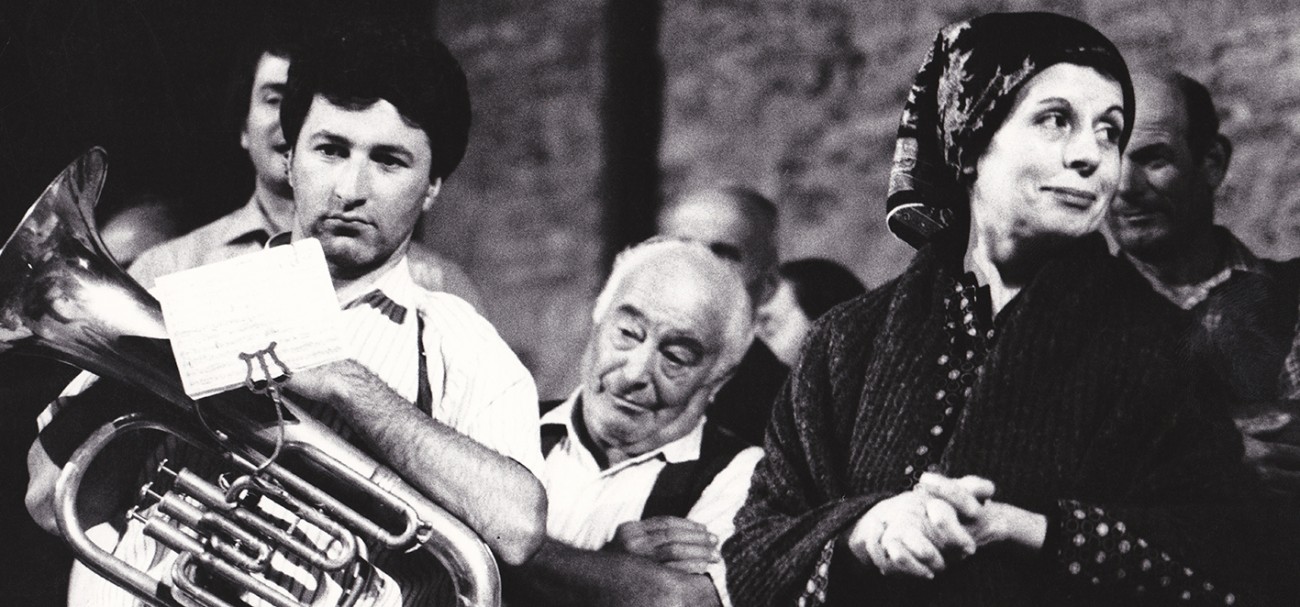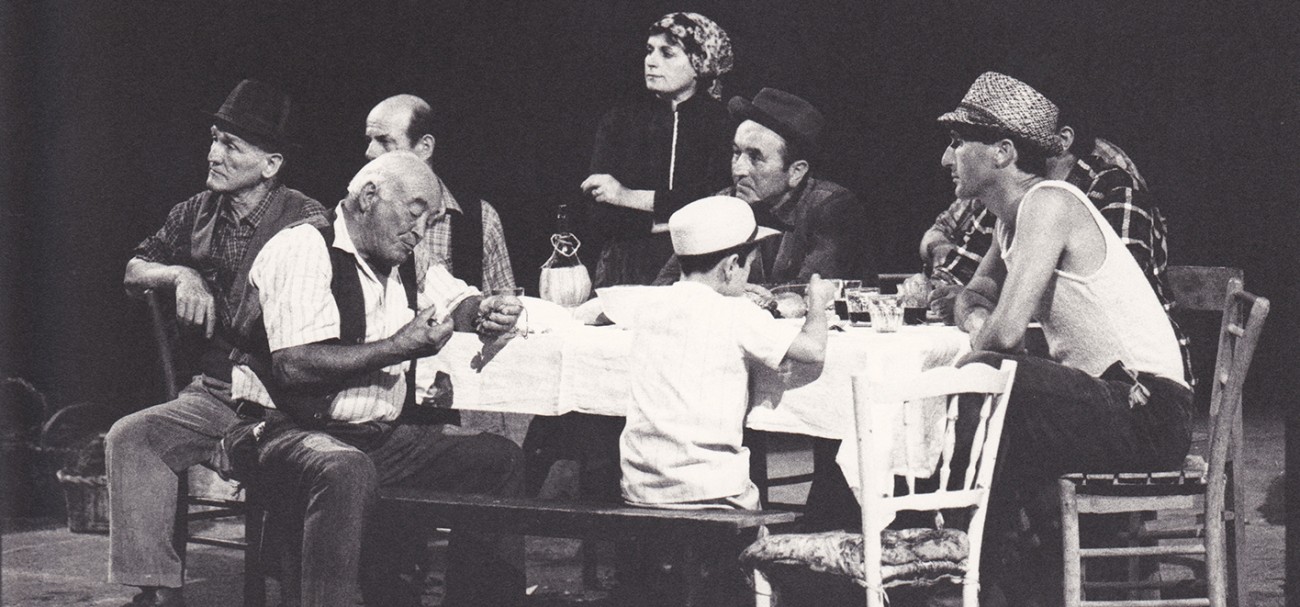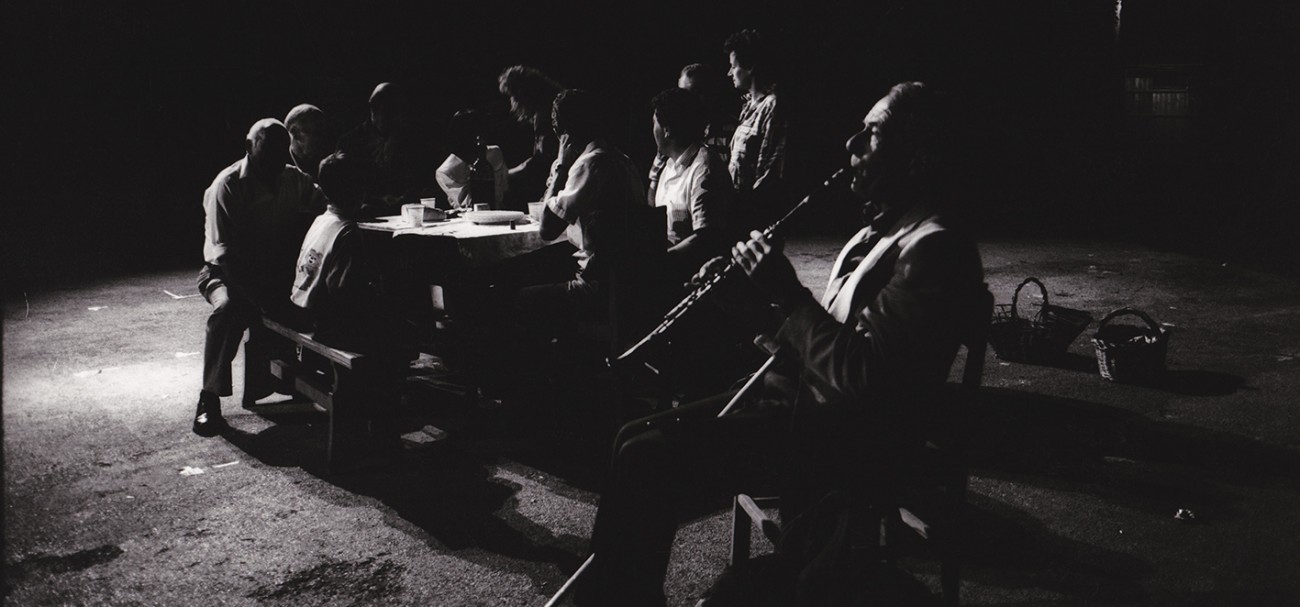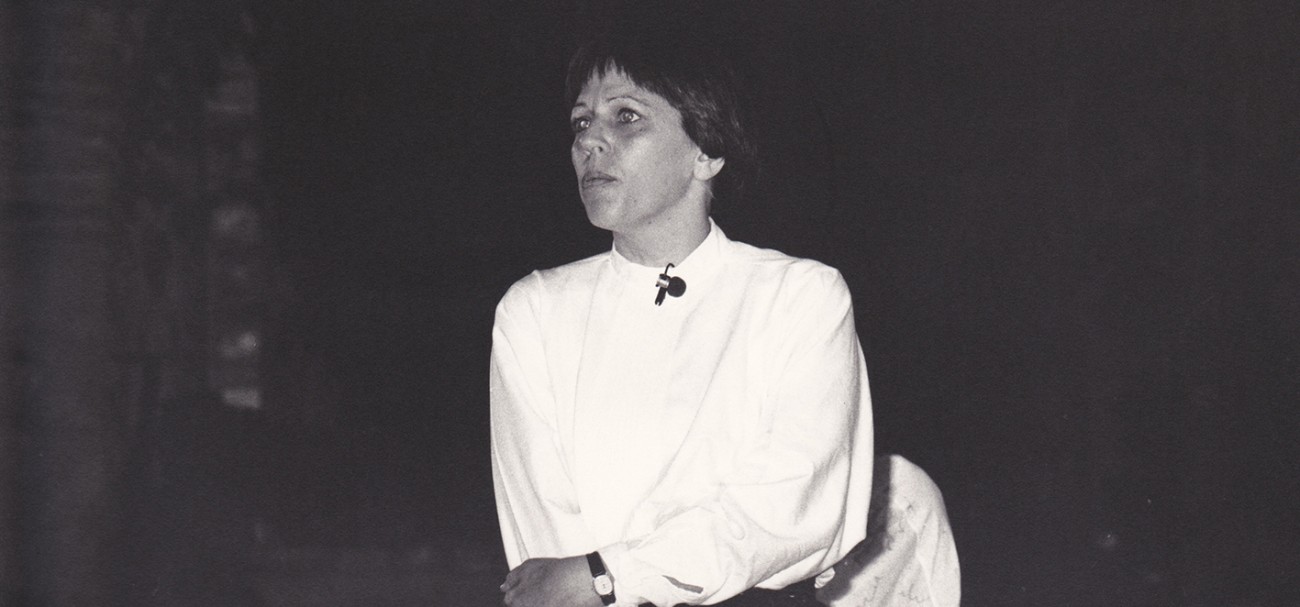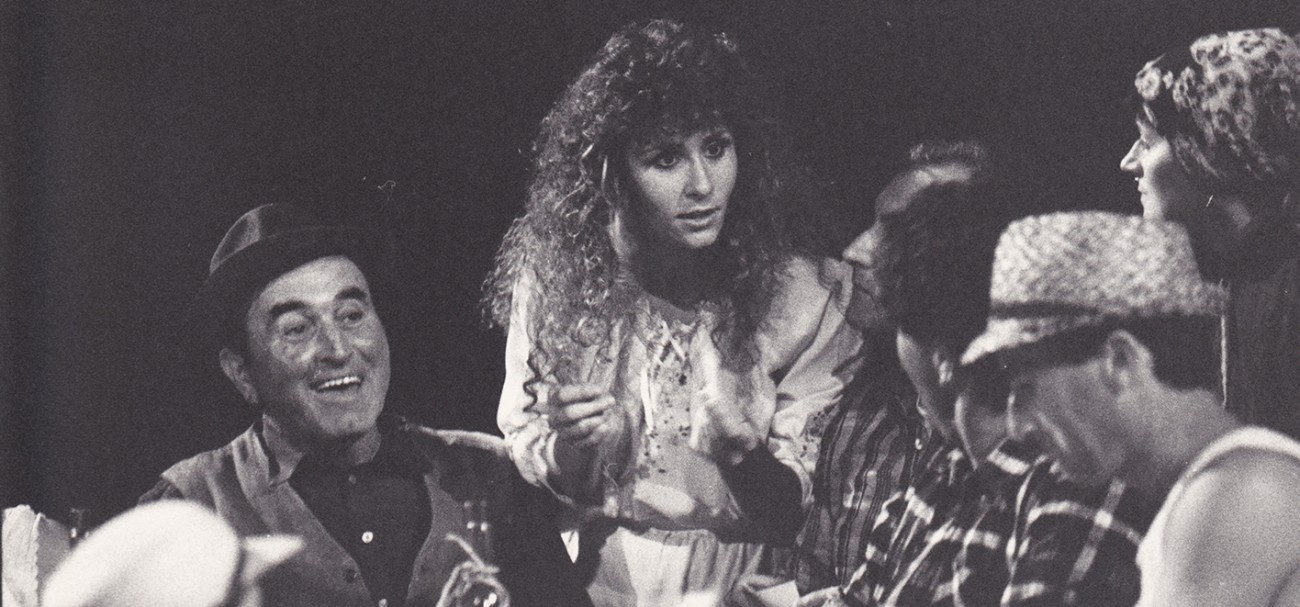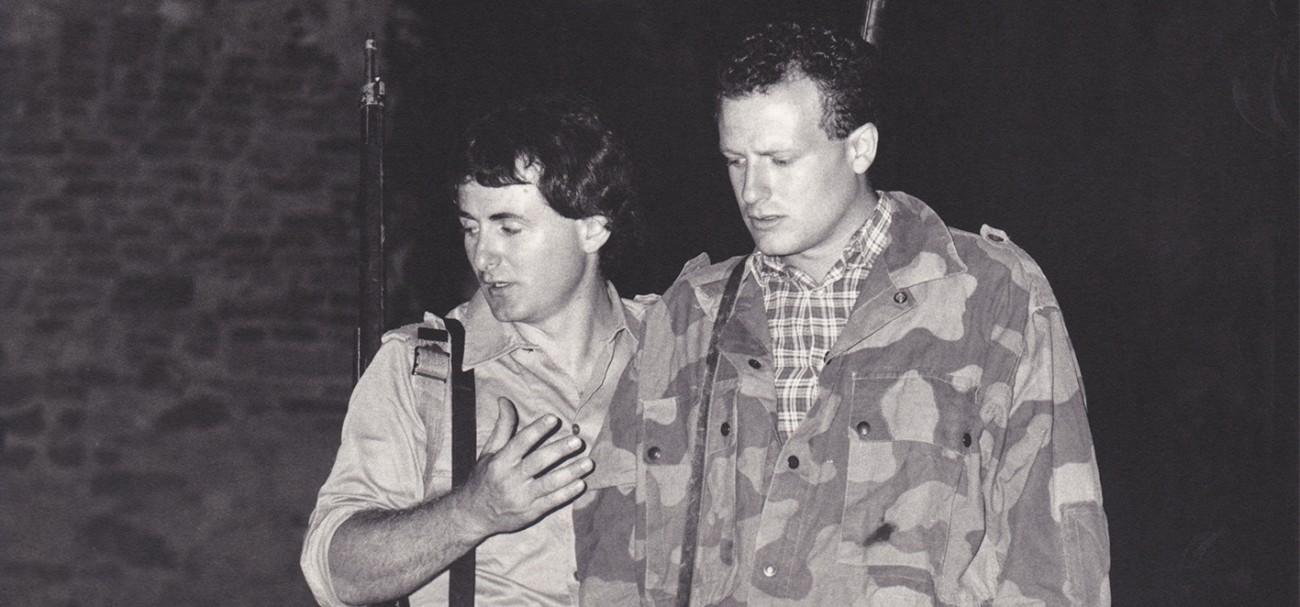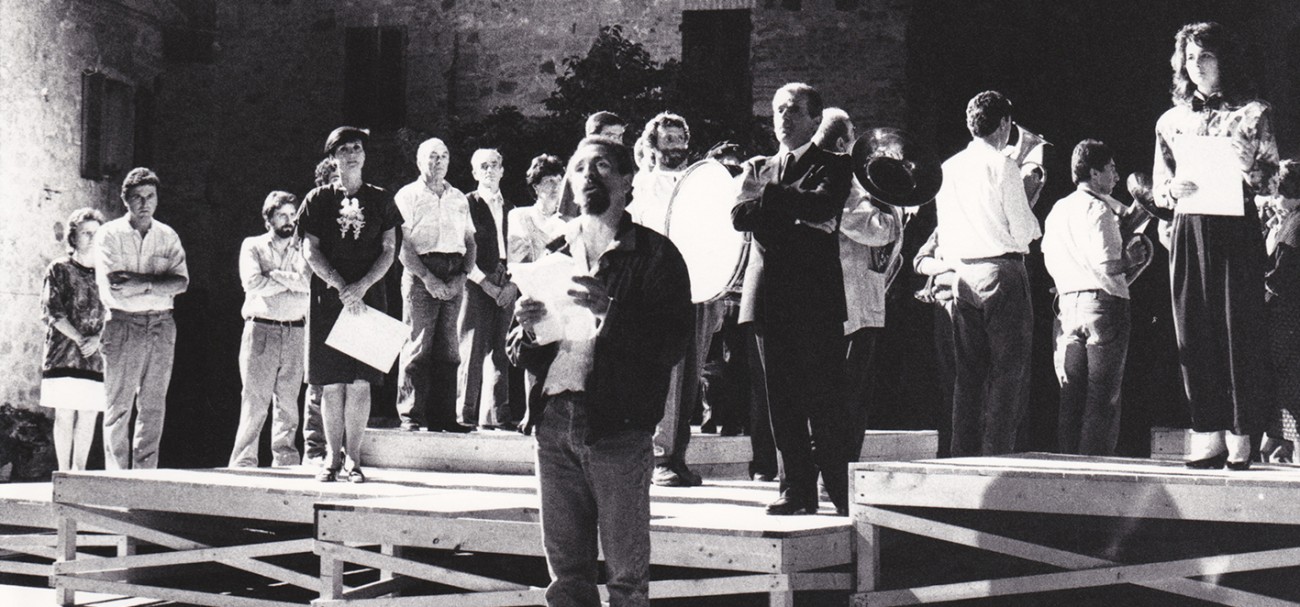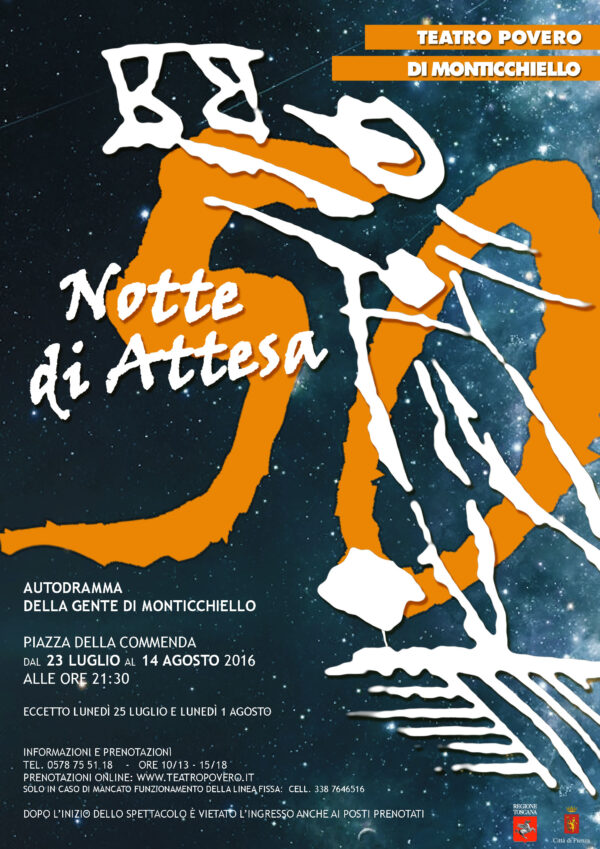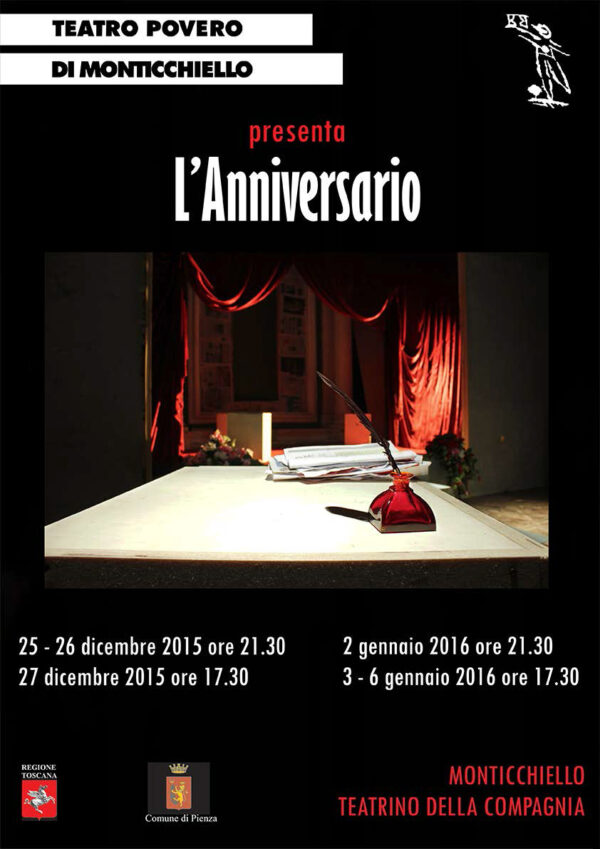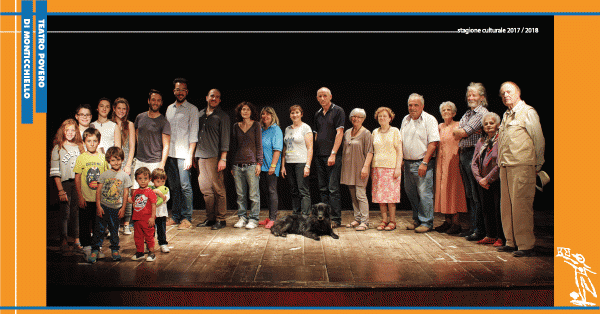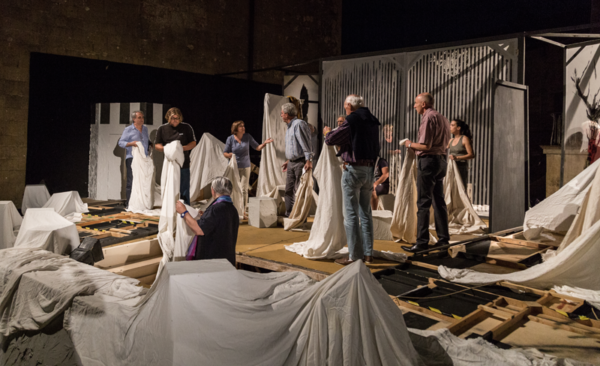A new Italian law (no. 180) on the treatment of people with mental illnesses had led to the establishment in Monticchiello of a new hostel, in which patients could be helped out of the restrictions of psychiatric asylums and into modern life. This prompted an autodramma on the theme of ‘diversity’ of how we react to people whom we perceive as different from ourselves.
As so often, the theme was treated from two different points of view, that of the sharecropping peasant in the past, and one belonging to contemporary society. The first act (based on the family memories of some of the actors) showed a peasant family who had to cope with its own ‘oddball’ member, almost the equivalent of a ‘village idiot’; but one who was capable of perceiving and expressing some uncomfortable truths.
The second act was set in modern times, perhaps even in the near future. The Monticchiellesi were shown rehearsing and performing something which they had dramatized before: the ‘Battle of Monticchiello’ in 1944 between Italian partisans and Italian fascists. This was watched by some patients from the ‘half-way’ hostel down the hill, some of them played by actors and some by the patients themselves. At a certain point, the patients invaded the stage, and gave their own reaction to the conflicts and violence which were being represented in the play within the play.
The team of Teatro Povero dramatists—Andrea Cresti, Marco Del Ciondolo, Maria Rosa Ceselin and Vittorio Innocenti—made careful use in preparing their script of interviews actually conducted with psychiatric patients by doctors. They collaborated with a local psychiatrist, Vieri Marzi—an encounter from which both sides felt they had benefited. Relations between the psychiatric home and the Teatro Povero then continued to be close and warm for many years.

